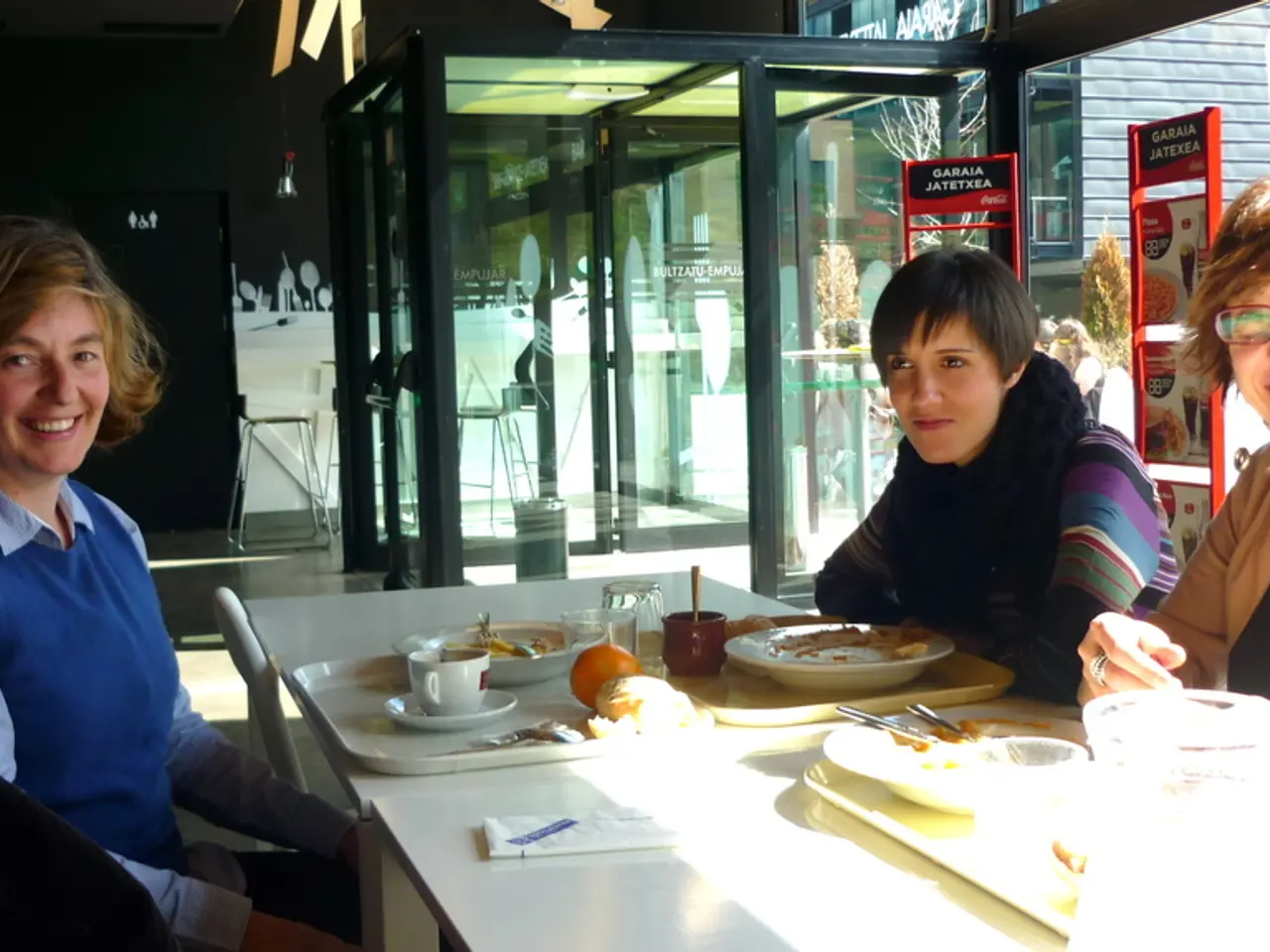Debilitating decline in hospitality sector's annual turnover during the year of the coronavirus
In the heart of Germany, a waitress in a bustling café serves coffee, a scene that was all too familiar before the COVID-19 pandemic. However, the photo, provided by the dts News Agency, serves as a stark reminder of the challenges the German hospitality industry has faced in the past year.
The renewed lockdown in November 2020 halted the gradual recovery the industry had been experiencing in the preceding months. The estimates for 2020 take into account hospitality turnover for the months of January to November, an estimate for December, and revisions for the months of March to November.
According to the Federal Statistical Office (Destatis), the German hospitality industry generated around 38% less in real terms and around 36% less in nominal terms in 2020 compared to 2019. The initial estimates for the hospitality industry were released on Monday.
The lockdowns and social distancing measures forced the closure of hotels, restaurants, and cultural venues, leading to significant revenue losses, closures, and employment disruptions. However, recovery trends have included gradual easing of restrictions, government financial support, and shifts in consumer preferences toward unique, localized, and contactless hotel experiences.
In November 2020, hospitality turnover was 67.9% lower in real terms and 66.4% lower in nominal terms compared to November 2019. Within the catering sector, the real turnover of caterers was 45.1% lower than in November 2019, and turnover fell by 60.1% in real terms in November 2020 compared to the same month in 2019.
Hotels and other accommodation providers also felt the brunt of the pandemic, with a 82.2% lower turnover compared to November 2019. Compared to February 2020, hospitality turnover was 67.4% lower in real terms in November 2020.
The government introduced extensive economic stimulus programs, including liquidity assistance and quick loans to small businesses such as those in hospitality, to alleviate financial pressure. These measures, combined with the sector's adaptability, have helped stabilize businesses and pave the way for recovery.
Recovery trends for the German hotel market have included the release of travel restrictions and gradual reopening starting mid to late 2020 and into 2021. There has been a growing emphasis on boutique hotels, eco-friendly accommodations, and offerings focused on local culture and experiences to attract guests post-lockdown.
An increased use of digital booking platforms and contactless services reflect the shift in consumer behavior and hygiene expectations. Government-backed programs maintaining liquidity and supporting job retention have also played a crucial role in stabilizing businesses.
Although full recovery has been progressing, the hospitality industry in Germany has acknowledged a shift in demand patterns with travelers seeking more personalized, safe, and flexible lodging options, indicating a transformation rather than a return merely to pre-pandemic norms.
The German hospitality industry has weathered a storm, but with resilience and adaptability, it continues to show signs of recovery. As the world navigates the ongoing pandemic, the industry's ability to adapt and innovate will be key to its continued success.
The lockdowns, social distancing measures, and closures in the German hospitality industry extended beyond the hospitality sector, affecting businesses like retail and finance as well. As travel restrictions lifted, there was an increase in demand for unique, localized, and contactless hotel experiences, reflecting a shift in consumer preferences across several industries.
Despite the challenges faced by the hospitality industry in Germany due to the COVID-19 pandemic, economic stimulus programs such as liquidity assistance and quick loans for small businesses have played a vital role in alleviating financial pressure and paving the way for recovery, not just in hospitality but in other industries too.




